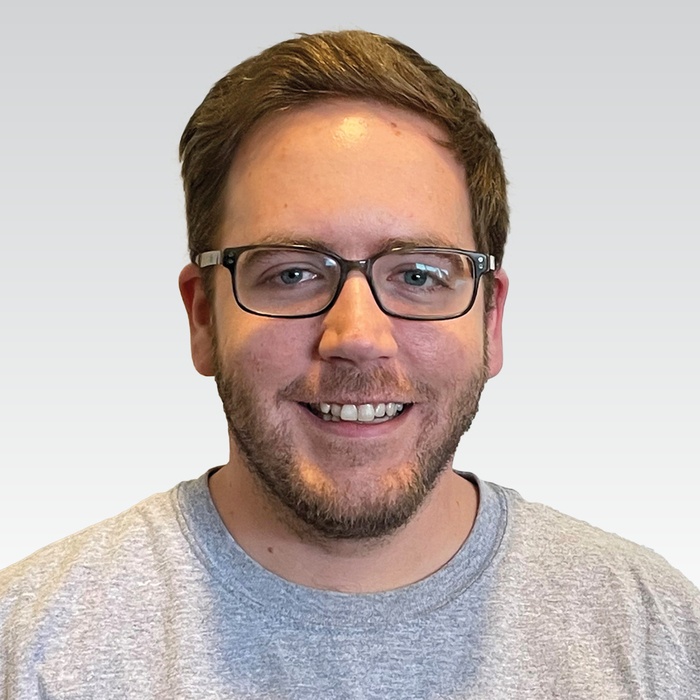
What is your position with Ellipsis?
I’m a youth care worker in the Independent Living Program at Ellipsis.
How long have you worked here?
This September will make 12 years in this organization! I started working at Ellipsis in 2013 when it was still called Youth Homes of Mid-America. A few years later, when the Independent Living Program launched, I moved into my current role. It's been wild to see how much the organization — and the youth we work with — has grown since I started.
Have you had any other roles/jobs during your tenure with Ellipsis?
When I started, I was part time and working weekends with younger kids. I didn’t stay there too long before transferring to an open part-time spot in a different building on the North Campus, and I went to a full-time position within a year. I was there for about three years before the Independent Living Program launched. I was one of the first staff members at the Park Avenue location on the South Campus, which was the first program to house both young men and women. I stayed there until 2019 when I moved to my current position at the North Campus.
What drew you to work at Ellipsis?
I was finishing my senior year at Grand View University and needed an internship. A classmate, who worked part time at Ellipsis (which was then YHMA) suggested I talk to one of the supervisors. I landed a part-time job there for the semester, and the rest is history.
What made me stay full time was the same thing that drew me to this field in the first place. My academic adviser once asked me, “What are you good at? What do you love to do? And how can you turn that into a career?”
For me, the answer was simple: helping people. Working at Ellipsis has allowed me to do what I’m good at while pushing me to grow as a person and make a real impact on the kids I work with.
Can you recall a moment (during your career with Ellipsis) when you felt like you were in exactly the right place, doing exactly what you should be doing? What was that like?
Honestly, there have been so many moments over the years that it’s hard to pick just one. But one that stands out happened in my first few years here. We had a kid who had been through so much trauma that he struggled to trust anyone. To cope, he created a fantasy world for himself, often telling stories about having powers and abilities. It made it hard to address his real-life experiences, so I decided to try something different.
I created a comic book-style story where he was the main character with all the powers he talked about. I left the backstory blank and used our sessions to let him fill it in. Through this, we were able to explore his trauma in a way that felt safe and on his terms. It also helped build trust between us. When he started calling me “Air-bear” instead of Aaron, I knew I’d made a connection. That was the moment I realized I was exactly where I needed to be, doing exactly what I was meant to do.
Another moment where I felt like I was exactly where I should be didn’t hit me all at once. It came together over several moments across the last 12 years. Before I started here, I knew I’d meet like-minded people who shared my values and passion for this work, but I never imagined this place would lead me to my wife.
I still remember my first weekend working with her. Honestly, I was intimidated, not by her personality but by how incredible she was at her job. She was the most consistent staff member I’d seen, not just enforcing rules but making sure the kids felt cared for, respected and heard. She held them accountable when needed but never hesitated to provide a safe space for them to open up. I admired her from the start, and I still do now more than ever.
Today, she continues her amazing work in the Neurodevelopmental and Comorbid Conditions program, and we’re married with a daughter who will be turning 2 this summer. My time at Ellipsis has been about helping young people heal and grow, but I never expected it would also be where I’d grow a family of my own.
What are some of the more challenging aspects of this job?
One of the most challenging aspects of this job is helping these kids work through deeply ingrained patterns of behavior while also addressing the underlying trauma that may have shaped those behaviors. It’s really hard seeing kids who have experienced so much trauma and pain at a young age. Sometimes, you want to fix everything for them, but you have to remind yourself that healing takes time — and it’s their journey, not yours.
It can be difficult to see them resist support or act out because they’re in survival mode. Another challenge is balancing their needs with the structure and rules of the program, as some kids struggle with authority or trust. Each situation is unique, so finding the right approach can be demanding and emotionally exhausting.
What are some of the rewarding aspects of the job?
The most rewarding part of this job is seeing a kid achieve something they didn’t think they could, whether it’s learning a new skill, mending a relationship or finding the confidence to work toward independence. Those moments of growth — like when they take ownership of their actions, open up about what they’re going through or even just express genuine gratitude from the heart — make all the hard days worth it. Watching them take steps toward a brighter future, even if they’re small ones, is an incredible reminder of why this work matters.
What really hits home are the moments that come long after a young person has left the program. Sometimes I’ll catch myself wondering how someone I worked with years ago is doing. Out of nowhere, the phone rings. It’s that same kid, now a young adult, calling to share their successes: how they got into college and are loving their classes, how they’ve repaired family relationships, or how they’ve been sober for years.
Those calls always seem to come at just the right time, usually when you’re questioning if you’re really making a difference. Hearing their voice on the other end telling you exactly how far they’ve come is a humbling and powerful reminder that the work we do often plants seeds we don’t get to see grow right away.
When we do, it’s everything.
Why is it important to have residential programs in communities and qualified people working in them?
Residential programs like Ellipsis are so important because they give young people a safe, structured space to work through the tough stuff life has thrown at them. These programs act as a bridge for youth who need extra support in learning life skills, addressing mental health challenges, or just having a place where they feel seen and heard. It’s about giving them the tools they need to heal, grow and start building toward a future they can feel good about.
Having passionate, qualified staff is a huge part of making that happen. These kids don’t just need care; they need people who can meet them where they’re at, who get what they’re going through and who can help them believe in their own potential.
Working with at-risk youth takes a lot of patience, empathy and some pretty specific skills. Most of all, it takes heart. It’s about building trust, showing them they’re not alone and helping them see that change is possible. When you’ve got a team of people who really care, who are willing to put in the time and effort, you create a space where these young people feel valued, supported and motivated to make positive changes. That makes all the difference.
What is a misconception people may have about mental health treatment? How do you dispel that?
One big misconception about mental health treatment is that it’s only for people with major, obvious problems. A lot of folks think it’s something you turn to as a last resort instead of seeing it as a proactive way to take care of yourself. That kind of stigma can make young people feel like their struggles aren’t serious enough to ask for help, or worse, that seeking help is a sign of weakness.
I work to change that by having open, honest conversations about mental health with the youth I work with. I remind them that taking care of your mental health is just as important as looking after your physical health.
If there’s anything else you’d like to add, please feel free to do so!
Everyone can benefit from learning things like coping skills, better communication or how to process tough experiences. It’s not about “fixing” anything; it’s about giving yourself the tools to handle life’s challenges and thrive. It’s for building a stronger, healthier foundation for the future. When we normalize this perspective, more people feel empowered to take that step, and that’s how we create lasting change.
